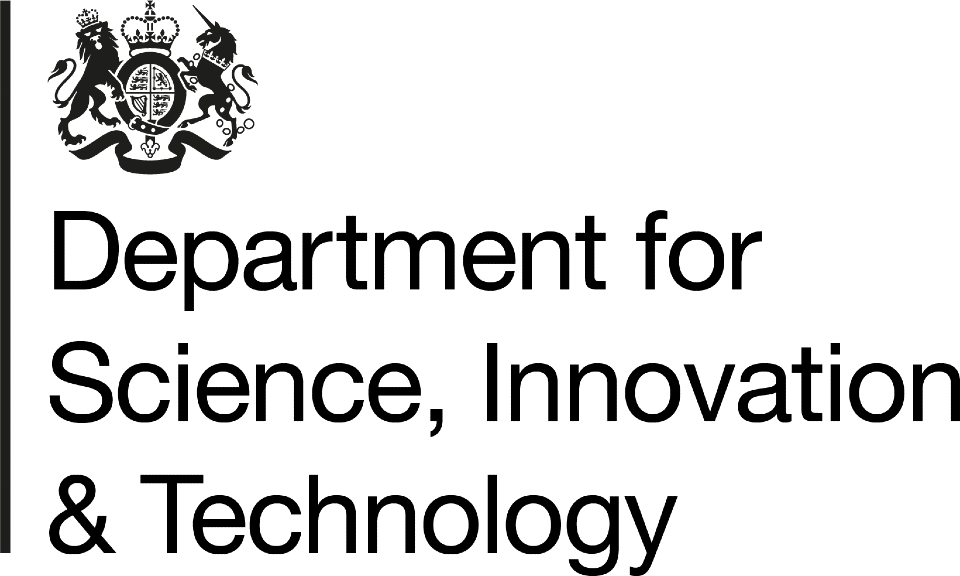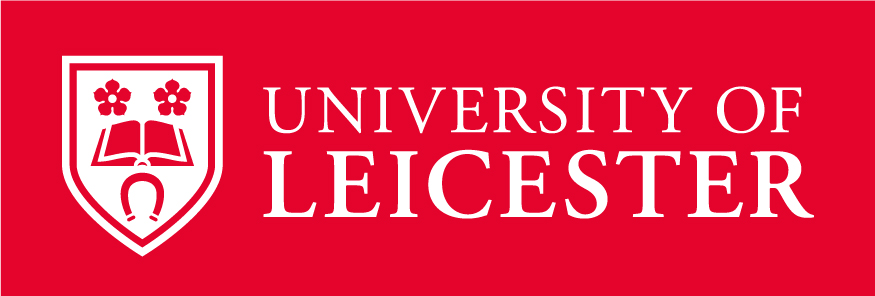We’re building an evidence base to improve skills policy and inform decision‐making.
We’re experts in space skills, training, and recruitment and help employers, policy makers, and training providers to address skills shortages and improve their understanding of the sector.
Commission researchOur areas of research
The space skills gap
Where are the skills shortages in the space sector? We’re interested in understanding exactly what skills the industry is looking for and what they find is lacking in their new recruits, as well as how those needs will change as the sector grows. We’re also interested in how people gain those skills and what can be done to ensure there is adequate training provision for graduates, career‐changers, and current space professionals.
Best practice
What is the best practice in recruitment, training, and inclusion within the space sector, and what can we learn from other sectors? We’re interested in what works and what doesn’t work about the sector’s current programmes and practices, and how all stakeholders can be encouraged to embed and continuously improve those practices.
The future space workforce
What does the future space workforce look like, and how can we attract them to the sector? We’re interested in demographics like gender, ethnicity, sexual orientation, socioeconomic background, and regional location, and how we can ensure the space sector is representative of the wider population and inclusive to people of all backgrounds. We also follow the changing perceptions and expectations that people have of their careers, from being able to work flexibly to having a social impact.
Perceptions of the space sector
What do people think of the space sector, and is it a sector they want to join? Space has grown a great deal in the public consciousness recently, but still too few know that it’s a growing sector with a wide variety of jobs. We’re interested in how much of the space sector people know about, where they get their perceptions and misconceptions from, and what we can do to make a space career more attractive. We’re also interested in how people already in the sector view their work and why they choose to stay or leave.
Interested in contributing?
Only with cross‐sector collaboration can we properly tackle the skills shortage. Our research relies on the space organisations pooling their data to make the whole sector better.
Join usOur reports
New estimates for the UK’s regional space workforce
January 2025
Regional estimates for the UK’s space workforce, for the first time excluding direct to home broadcasting (DTH) which makes up as much as half of the UK space workforce
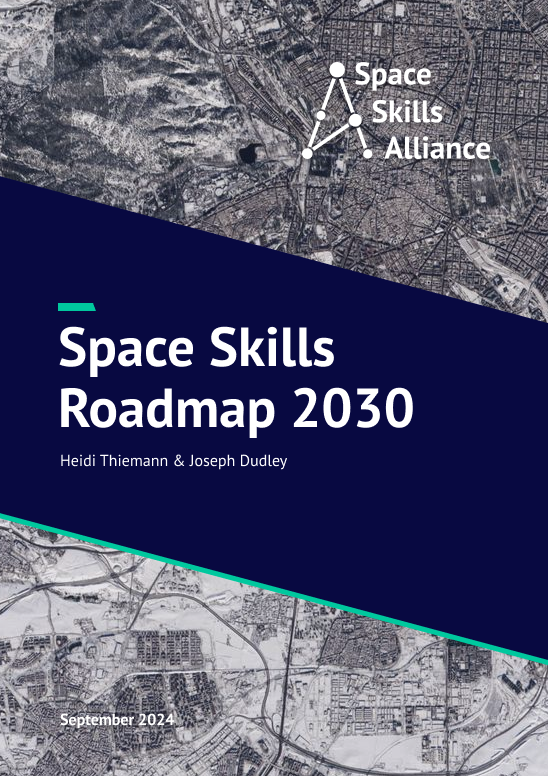
Space Skills Roadmap 2030
September 2024
26 recommendations to tackle the space skills gap over the next five years. It is based on our research over the past five years, discussions with employers, educators, policymakers, job seekers, students, and others, and initiatives that we’ve seen work in other sectors.
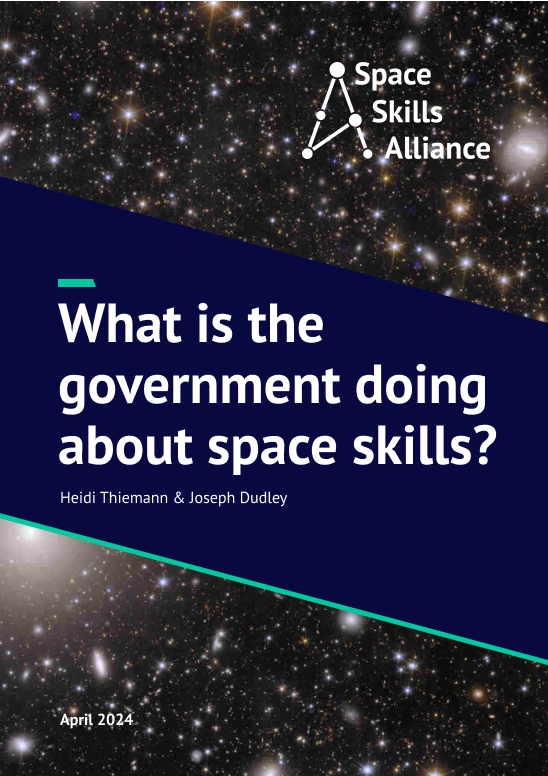
What is the government doing about space skills?
April 2024
A summary of everything we know that the government is doing to tackle the space skills gap, focusing on activities conducted by the UK Space Agency, the MOD, and the Satellite Applications Catapult since the National Space Strategy was published in 2021
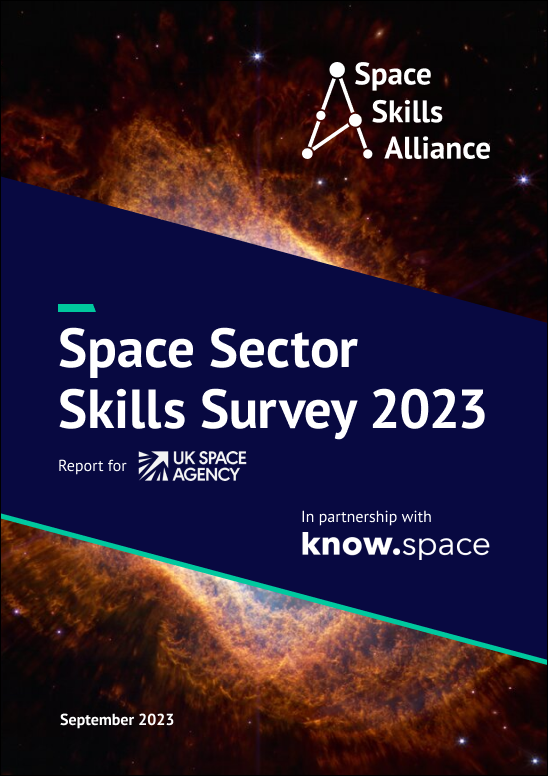
Space Sector Skills Survey 2023 results
September 2023
The findings of the Space Sector Skills Survey 2023, a major national survey to understand space skills gaps and recruitment challenges.
In partnership with

How and why people join the UK space sector
March 2023
Why do people join the UK space sector? What routes do they take? A report based on the findings of the 2020 Space Census.
In partnership with
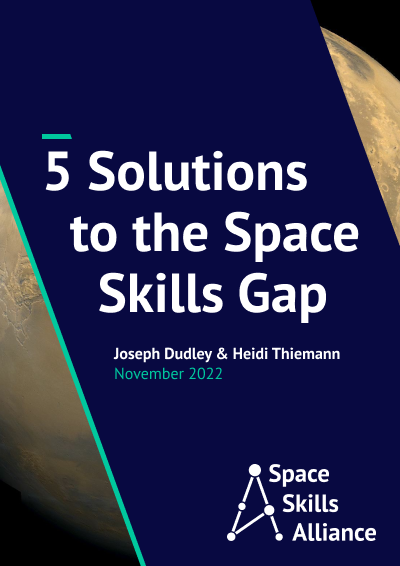
5 Solution to the space skills gap
September 2022
5 actions the space sector can take right now that will expand the space sector’s talent pool, increase the number of experienced people, and make it easier to adapt to changing skills needs
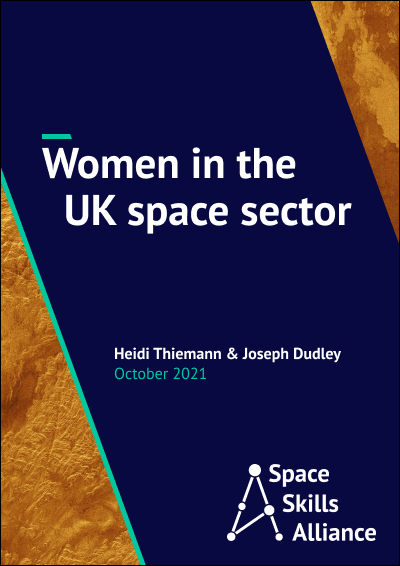
Women in the UK Space Sector
October 2021
A report on the experiences of women in the UK space sector, based on from the findings of the 2020 Space Census.
In partnership with
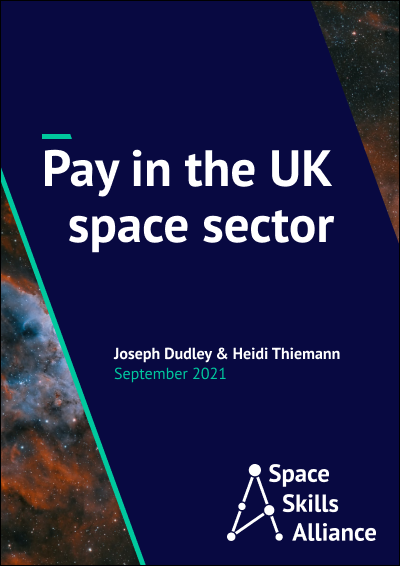
Pay in the UK Space Sector
September 2021
The first pay data for the UK space sector, based on from the findings of the 2020 Space Census.
In partnership with
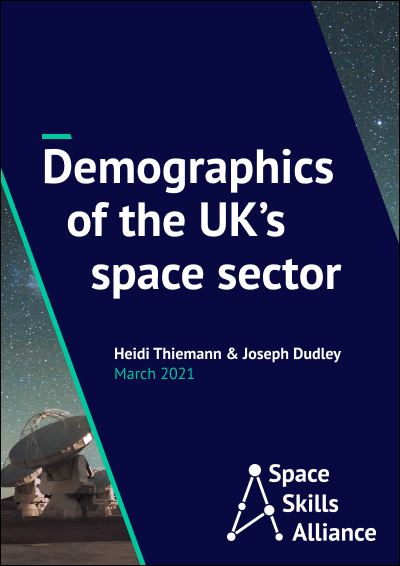
Demographics of the UK Space Sector
March 2021
The first comprehensive demographic statistics for the UK space sector, drawn from the findings of the 2020 Space Census.
In partnership with
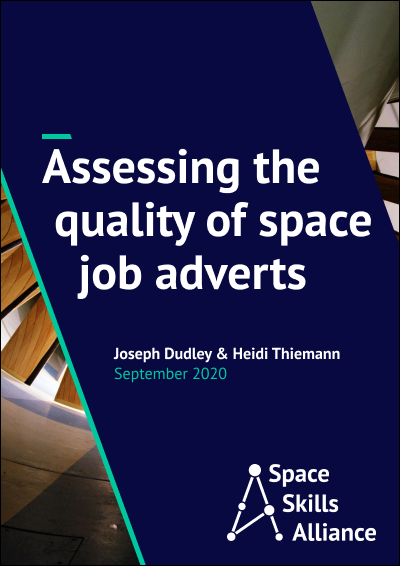
Assessing the quality of space job adverts
September 2020
An assessment of 50 job adverts from 50 space companies scored against 10 criteria based on recruitment best practice, and recommendations for improvements.
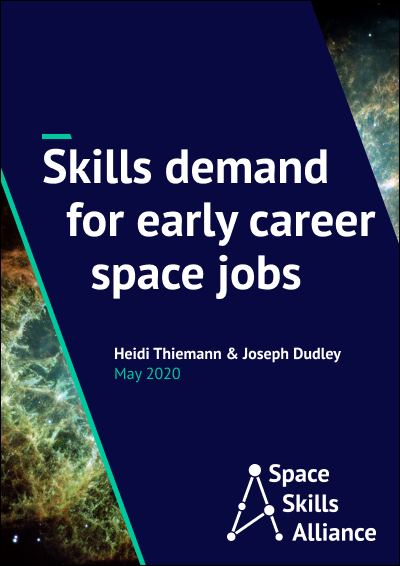
Skills demand for early career space jobs
May 2020
The first quantitative assessment of skills demand in the UK space sector, analysing 812 early career job adverts to identify competencies in highest demand.
In partnership with
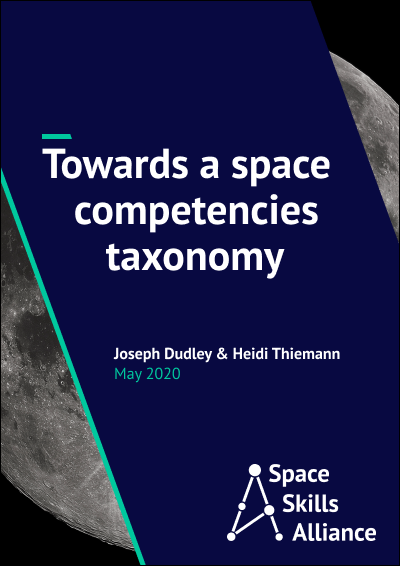
Towards a space competencies taxonomy
May 2020
The first competencies taxonomy to be developed specifically for the space sector, comprising about 250 competencies across five categories.



